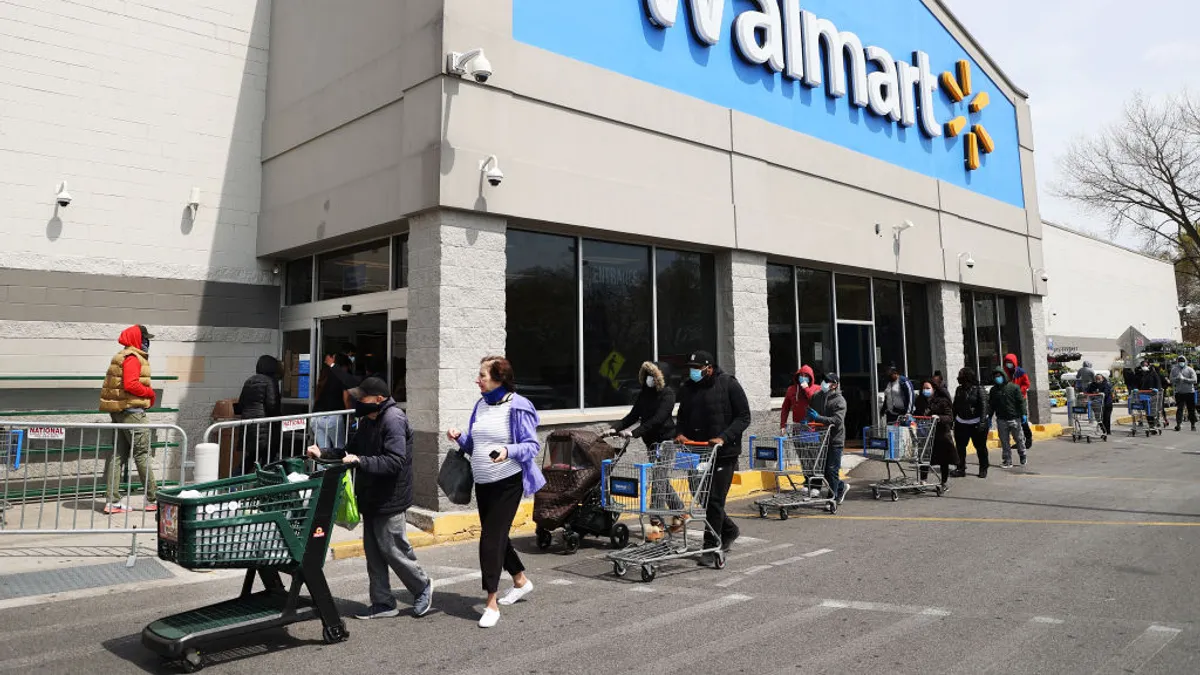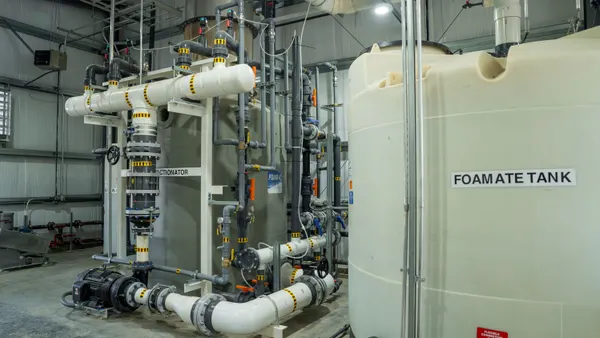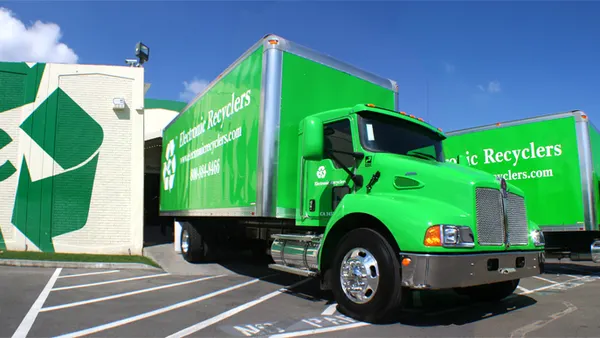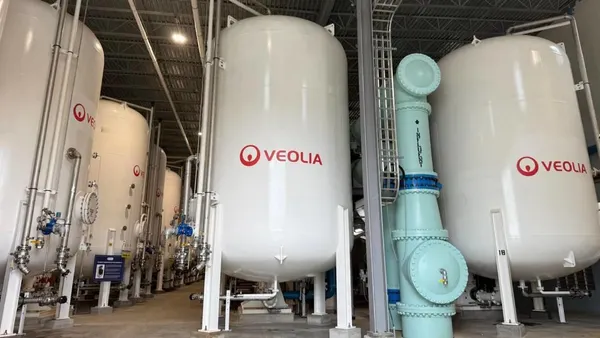Dive Brief:
- Walmart has signed on to the Pacific Coast Food Waste Commitment, which is working to reduce food waste by 50% along the West Coast by 2030, according to an announcement on Monday.
- Walmart’s data on food loss and waste, which will be anonymized and aggregated with data from the PCFWC's other retail signatories, will help provide a more precise estimate of waste across the retail sector. That data will then be used to identify key waste "hot spots" to focus on.
- For Walmart, the latest pledge builds on its more than 15 years of sustainability work and a company-wide effort, called Project Gigaton, to reduce greenhouse gas emissions.
Dive Insight:
By signing on to the food waste pledge under the Pacific Coast Collaborative, Walmart is joining several other major retailers as part of one of the largest public-private partnerships dedicated to food waste reduction.
“Better data can identify scalable ways for us to accelerate these efforts further, and it is incumbent on retailers like Walmart to join efforts such as the PCFWC to address these systemic issues," Jane Ewing, senior vice president of sustainability at Walmart, said in a statement.
In the announcement, PCFWC also said foodservice company Sodexo US signed on to its pledge, noting the participation of the two "industry leaders" will not only impact waste reduction with their own operations but also can influence the suppliers they partner with and perhaps inspire other food companies to join as well.
Albertsons’ West Coast division, which includes its Albertsons, Safeway, Vons, and Pavilions banners; Kroger; PCC Community Markets; New Seasons Market; Raley's; and Sprouts Farmers Markets all previously joined the Pacific Coast Collaborative.
PCFWC said in the announcement that food waste accounts for roughly 4% of greenhouse gas emissions in the U.S. — the equivalent of the emissions from 21% of cars on the road. The group's reduction target mirrors the U.S. EPA's goal of reducing food waste 50% by 2030.
Earlier this year, the Food Industry Association called on food retailers to ramp up their food waste reduction efforts, noting that businesses and consumers in the U.S. together throw away 25% to 40% of food grown, processed and transported domestically each year.
Since 2019, Walmart has sold 862 million food units through food discount programs, and in 2020, donated more than 745 million pounds of food globally, Ewing said. That same year, Walmart was among nearly 200 major food suppliers, manufacturers and retailers who committed to the 10x20x30 initiative, pledging to slash their food waste in half by 2030.













